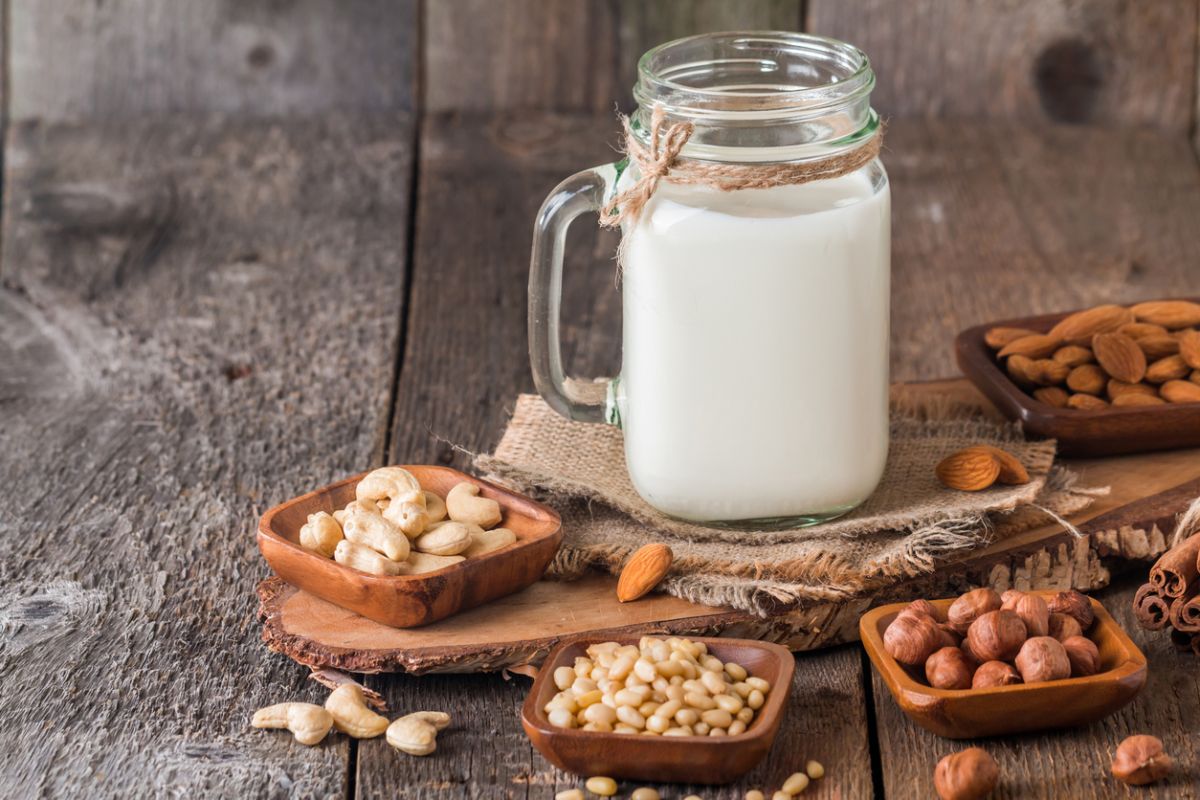Milk is an essential food in many cultures around the world, but with so many types available on the market, it can be difficult to choose the one that’s best for you. Whether you’re looking for dairy milk, plant-based options, or following a specific diet, each type of milk has its own benefits and characteristics.
In this guide, we will explore the most popular types of milk, their advantages and disadvantages, to help you make the right choice based on your nutritional needs and lifestyle.
1. Cow’s milk: The traditional favorite
Cow’s milk is the most consumed type of milk worldwide. It is rich in protein, calcium, and essential vitamins such as B12 and riboflavin. It also contains saturated fats, and choosing between whole, semi-skimmed, or skimmed milk depends on your nutritional needs.
Benefits:
- Excellent source of calcium: Important for bone health.
- Rich in protein: Promotes muscle development and tissue repair.
- Essential vitamins: Vitamin D and B12 are crucial for immunity and energy production.
Disadvantages:
- Lactose: Many people are lactose intolerant, which can cause bloating, diarrhea, and gastrointestinal discomfort.
- Saturated fats: Whole milk contains a significant amount of saturated fat, which may contribute to raising cholesterol levels.
2. Almond milk: Easily digestible vegan option
Almond milk is a popular choice among those following a vegan diet or who are lactose intolerant. It is very light and easily digestible, with a mildly sweet flavor and smooth texture. While it contains fewer proteins than cow’s milk, almond milk is a good source of vitamins E and D.
Benefits:
- Lactose-free: Perfect for people with lactose intolerance.
- Low in calories: Ideal for those looking to lose weight or control their calorie intake.
- Rich in antioxidants: Vitamin E is essential for skin health and cellular protection.
Disadvantages:
- Lower in protein: Almond milk is not a significant source of protein compared to cow’s milk or other plant-based milks.
- May contain added sugars: Some almond milk variants are sweetened, which can increase calorie content.
3. Soy milk: A balanced choice for many
Soy milk is one of the most popular plant-based alternatives to cow’s milk. It contains a good amount of protein and is also fortified with calcium and vitamins. It has a thicker consistency and neutral taste, making it easy to use in a variety of recipes, from cereals to smoothies.
Benefits:
- Protein content similar to cow’s milk: Ideal for building and repairing tissues.
- Good source of calcium and vitamin D: Important for bone health.
- Lactose-free: Perfect for those with lactose intolerance or vegans.
Disadvantages:
- Possible allergic reactions: Some people are allergic to soy, which may lead to rashes, breathing difficulties, or digestive issues.
- May contain GMOs: If not specified, soy may come from genetically modified crops.
4. Coconut milk: Exotic and creamy
Coconut milk is becoming increasingly popular, used in both beverages and cooking, due to its creamy texture and mildly exotic flavor. It contains healthy saturated fats (MCT fats) that can support metabolism and provide a quick source of energy.
Benefits:
- Healthy fats: Contains medium-chain triglycerides (MCTs), which can help burn fat quickly.
- Lactose-free: An excellent option for those with lactose intolerance.
- Unique flavor: Suitable for culinary preparations or tropical drinks.
Disadvantages:
- Low in protein and calcium: Not a significant source of essential nutrients.
- High in fats: Although the fats in coconut milk are healthy, excessive consumption can increase calorie intake.
5. Rice milk: Light and hypoallergenic
Rice milk is a great choice for people with allergies or sensitivities to soy or nuts. It is easy to digest and contains small amounts of protein but is a good source of carbohydrates and fiber.
Benefits:
- Hypoallergenic: Ideal for people with soy, dairy, or nut allergies.
- Highly digestible: Easy to digest, even for those with sensitive digestive systems.
Disadvantages:
- Low in protein: Rice milk contains very little protein, making it less beneficial for muscle building.
- High in carbohydrates: May not be ideal for those following a low-carb diet.
6. Goat’s milk: An easier-to-digest alternative
Goat’s milk is another animal-based milk option that may be easier to digest than cow’s milk for some individuals. It is lower in lactose and contains a different form of protein, which may be better tolerated by some consumers.
Benefits:
- Easier to digest: The proteins in goat’s milk are smaller, making it easier to break down.
- Source of calcium: Contributes to maintaining bone health.
- Fewer additives: Less likely to contain additives compared to cow’s milk.
Disadvantages:
- Higher cost: Goat’s milk tends to be more expensive than cow’s milk.
- Distinct taste: Not everyone appreciates the stronger taste of goat’s milk.
Which milk is right for you?
Choosing the right type of milk depends on your personal preferences, nutritional needs, and any food allergies or intolerances you may have. If you’re looking for milk with high protein and calcium content, cow’s milk or soy milk might be the best options. If you follow a vegan diet or are lactose intolerant, almond, soy, or rice milk could be better alternatives.

No matter your choice, it’s important to pay attention to product labels to ensure that they do not contain additives or added sugars, which could affect long-term health.
Ultimately, the best type of milk is the one that meets your needs and fits your lifestyle.

